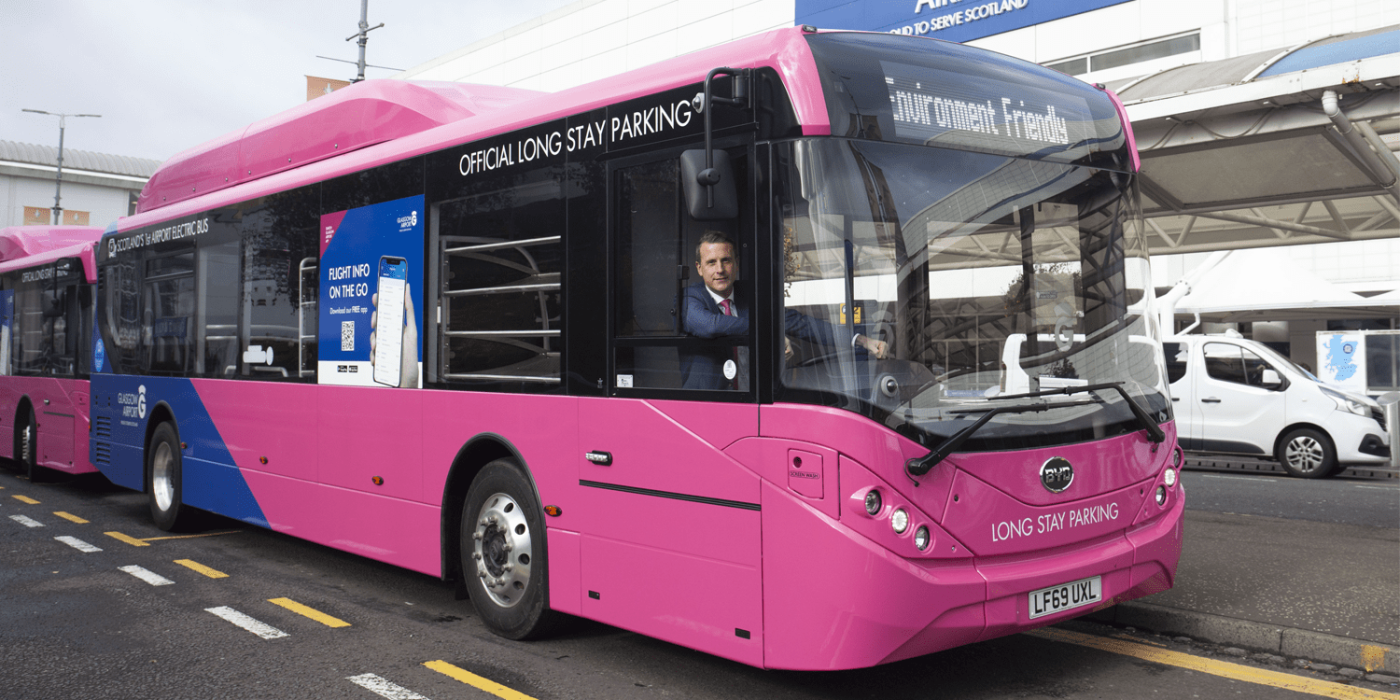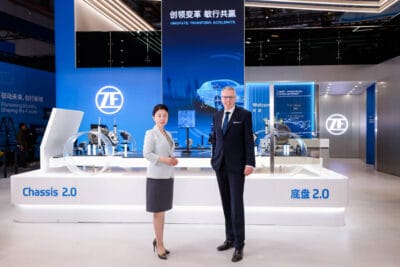Scotland grants over £40 million for zero-emission buses
The Scottish Government has awarded £40.5 million through a second round of the Scottish Ultra-Low Emission Bus Scheme (SULEBS). It is the largest SUBLEBS investment yet and will help replace 215 old diesel buses with new battery-electric models.
The new funding, which counts a little over 47 million euros, builds on the first round of the Ultra-Low Emission Bus Scheme that Scotland launched last August. The grants cover up to 50% of the cost difference between an ultra-low emission bus and a conventional diesel equivalent. That figure rises to up to 75% depending on the zero-emission capability of the bus.
Different from August, the new round is “a substantial increase,” according to Transport Scotland. The first round had supported 57 buses, and the intended budget for this second round has been increased by £15 million.
172 of the buses will be built in Falkirk, the seat of ADL. The Scottish bus builder uses drive lines from BYD for their electric buses. Twenty-two of the buses form part of an order for First Bus. The transport company reportedly wants the buses to enter service in time for the Climate Change Conference COP26 in Glasgow this November. First Bus committed to purchase no diesel buses after 2022 and to operate a fully zero-emission fleet by 2035.
Scotland’s McGill’s also put an order following the grant approval and buying e-buses from BYD-ADL as well as Yutong as reported. They too received funding through the Scottish Ultra-Low Emission Bus Scheme.
Other successful bidders in this new round include First Glasgow with 35 single-deck and 91 double-deck buses by ADL, Ember Core with a total of ten e-buses, Stage Coach West and East with 9 and 15 e-buses, respectively as well as Stagecoach Bluebird with 22 ADL buses.
The funding also includes infrastructure, financing up to 75 per cent of the cost. First Glasgow received the largest bulk of funding for its huge order, with £24,301,840 coming through SUBLEBS.
The Scottish government also points to its Bus Decarbonisation Taskforce looking into further models to decarbonise public transport. Cabinet Secretary for Transport, Infrastructure and Connectivity Michael Matheson said: “Our bus decarbonisation work, both through SULEBS and the Taskforce, is part of a wider package of support for our bus industry – including long-term funding of over £500 million for bus priority infrastructure.”
In a first paper on findings, the Taskforce emphasised the role as-a-service models may play in the bus market in future. Based on findings from a detailed analysis of different models and views gathered from stakeholder engagement, financing solutions, says the Taskforce, should incorporate “must-have components” such as protection of the residual value of assets, i.e. the battery or fuel cells or, the ability to minimise the upfront capital costs of vehicles, technology and infrastructure with an appropriate sharing of risk between manufacturers, operators and financiers.
When declaring a climate emergency in 2019, Scotland pledged to decarbonise transport while aiming for net-zero carbon-neutrality by 2040. Commitments include the phase-out of new petrol and diesel cars and vans by 2032 and light commercial vehicles by 2030. The public sector fleet must not by any new ICE by 2025. There are also plans to create Scotland’s first electric highway on the A9 and have at least 20 Electric Towns across Scotland by 2025. The Scottish Highlands and Islands also aim to become a net-zero aviation region by 2040.
transport.gov.scottransport.gov.scot (successful bids), zemo.org.uk (Taskforce presentation)





0 Comments